BAFEDILE Sekano, 23, lives in a shack in an informal settlement in Baipei township in Ward 1 in Tlokwe. She says she uses her sister’s address whenever she is asked to provide proof of where she lives.
The government is failing in its obligation to provide every citizen with a valid home address, yet passes legislation such as the Financial Intelligence Centre Act and the Regulation of Interception of Communications and Provision of Communication-Related Information Act, which require proof of address when opening a bank account or buying a cellphone SIM card.
Banking Association of SA general manager Stuart Grobler says address verification in SA is "garbage in, garbage out".
He says customers who open bank accounts do provide addresses and the banks have to "take what they are given".
It is not "technically feasible" to verify addresses in SA, he adds.
"The government is not discharging its basic obligation of knowing where its citizens live," Grobler says.
The thousands of adults without formal addresses who voted in a by-election in the Tlokwe municipality in 2013 without registering to vote in the wards in which they live are proving to be a headache for the Electoral Commission of SA (IEC).
In November, the Constitutional Court ordered the commission to hold fresh elections in the municipality in North West, after it emerged that voters in the 2013 by-election did not live in the wards they claimed they did.
Independent candidates, who had complained that the voters roll did not contain the addresses of all registered voters, lost their case in the Electoral Court, but won on appeal in the Constitutional Court.
The court declared that the IEC should obtain "sufficient particularity of the voter’s address to enable it to ensure that the voter is at the time of registration ordinarily resident in that voting district".
The court also ordered that the voters roll should have the "addresses of all voters, where these addresses are available" and its order is "prospective in operation from the date of this order".
However, the day before the fresh elections were due to be held last month, independent candidates from six wards filed an urgent application with the Electoral Court.
They said they had received a voters roll with more than 4,000 addresses missing.
The six candidates said the absence of addresses had prevented them from canvassing prospective voters. The IEC told the Electoral Court that it had done its best to "obtain sufficient particularity of the voters’ address" as ordered by the Constitutional Court.
The Electoral Court ordered the commission to postpone the poll until it could provide a voters roll with addresses, where available.
...
THERE was speculation that the difficulty in compiling an accurate voters roll for Tlokwe would be a reason for postponing this year’s local government elections until next year. But IEC deputy chairman Terry Tselane says there will be no postponement.
The IEC has conducted its first registration drive for the municipal elections, which are required to be held before August.
Political analyst Shadrack Gutto, the director of the Centre for African Renaissance Studies at the University of SA, says the commission has delivered credible elections since 1994. "I still have full confidence in the IEC," he adds.
But Gutto says implementing the Constitutional Court order will have an effect on the elections.
After 22 years of democracy, government agencies still battle to draw people into social safety nets, companies struggle to verify their customers’ addresses; and hundreds of thousands of people in shared housing and informal settlements find work-around solutions to fulfil administrative requirements.
In Tlokwe’s Ward 20, Thabo Mathambo lives in a shack. He says he will vote because it is his responsibility. He still has faith in the IEC because its processes are free and fair.
Mathambo says he used his childhood home address to register.
Another Ward 20 resident, who does not want his name published, says he doesn’t have an address, but his neighbours across the road let him use theirs — and provided him with an affidavit stating that this was true.
He says he is not voting in the rescheduled by-elections or the local government elections. "I don’t have faith in the IEC any more."
Kgang Rabotso, an independent candidate for Ward 18, says Ward 19 was separated from his ward by a street after the demarcation board drew up new boundaries in 2011.
"You get people from Ward 19, they are on the voters roll for Ward 18. The Constitutional Court said the IEC must clean that (up).
"We were querying that, we told them at a party liaison committee meeting that people on the voters roll … live in Ward 19, but are voting in Ward 18."
He says the IEC has not rectified the voters roll; the only corrective action it took was to inform people that they should not vote in wards in which they do not live.
"The IEC must take maybe 10 or 20 youth that have passed matric to go into wards to verify addresses, that’s the simple way, so that we could save time," Rabotso says.
"We are still waiting for the IEC to say to independent candidates and parties ‘come on board, let’s discuss the issue’.
"How are we going to know that certain people live in shack number two, three? In the previous election in 2013, people who did not live in Potchefstroom registered in Potchefstroom."
...
RABOTSO says Tlokwe’s independent candidates have been accused of stalling, because they know they will lose the by-election, but that is not their issue.
"This election must be free and fair," he says. "The IEC says it’s an independent commission that wants every election to be free and fair. Everyone must participate (in the by-election), like the court said.
"The IEC is employing people who are not fit enough to do their jobs. We want to show the IEC that it is possible to have free and fair elections in SA without any irregularities."
IEC deputy chief electoral officer Sy Mamabolo says the commission is working with municipalities, the Department of Home Affairs and the South African Social Security Agency (Sassa) to fix the problem.
The IEC is waiting for a response from Sassa on whether it will share the addresses on its database.
But, using Sassa’s information is not address "foolproof", Mamabolo says. Grant beneficiaries sometimes use addresses in the districts in which they draw money, not where they live.
The IEC is also approaching companies that have access to customer details for assistance in verifying addresses.
"They won’t give us that data easily, because it relates to the personal details of their clients, and in any case, they are struggling with the same problem," he says.
Mamabolo says only 4,000 out of 23,000 voters in Tlokwe had problems providing addresses.
Sassa spokesman Kgomoco Diseko says the agency requires beneficiaries to provide fixed addresses, but some people do not have one.
"Where individual fixed addresses do not exist (as in rural areas), we do accept a communal address, where they normally receive their mail. This may include the address of a shop in a village, a local traditional leader’s address, or even that of a pastor," Diseko says.
It is often impossible for Sassa to verify an address.
The IEC has instructed its lawyers to file an application with the Constitutional Court for clarification on the interpretation of its order. It has also postponed other by-elections in North West, KwaZulu-Natal, Limpopo and the Western Cape.
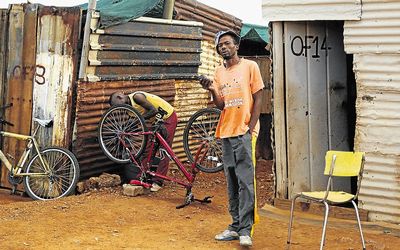
Thabo Mathambo, right, who helps a friend fix bicycles in Ikageng informal settlement in Tlokwe, says he has faith in the IEC to deliver a free and fair by-election in the district. Picture: PUXLEY MAKGATHO
BAFEDILE Sekano, 23, lives in a shack in an informal settlement in Baipei township in Ward 1 in Tlokwe. She says she uses her sister’s address whenever she is asked to provide proof of where she lives.
The government is failing in its obligation to provide every citizen with a valid home address, yet passes legislation such as the Financial Intelligence Centre Act and the Regulation of Interception of Communications and Provision of Communication-Related Information Act, which require proof of address when opening a bank account or buying a cellphone SIM card.
Banking Association of SA general manager Stuart Grobler says address verification in SA is "garbage in, garbage out".
He says customers who open bank accounts do provide addresses and the banks have to "take what they are given".
It is not "technically feasible" to verify addresses in SA, he adds.
"The government is not discharging its basic obligation of knowing where its citizens live," Grobler says.
The thousands of adults without formal addresses who voted in a by-election in the Tlokwe municipality in 2013 without registering to vote in the wards in which they live are proving to be a headache for the Electoral Commission of SA (IEC).
In November, the Constitutional Court ordered the commission to hold fresh elections in the municipality in North West, after it emerged that voters in the 2013 by-election did not live in the wards they claimed they did.
Independent candidates, who had complained that the voters roll did not contain the addresses of all registered voters, lost their case in the Electoral Court, but won on appeal in the Constitutional Court.
The court declared that the IEC should obtain "sufficient particularity of the voter’s address to enable it to ensure that the voter is at the time of registration ordinarily resident in that voting district".
The court also ordered that the voters roll should have the "addresses of all voters, where these addresses are available" and its order is "prospective in operation from the date of this order".
However, the day before the fresh elections were due to be held last month, independent candidates from six wards filed an urgent application with the Electoral Court.
They said they had received a voters roll with more than 4,000 addresses missing.
The six candidates said the absence of addresses had prevented them from canvassing prospective voters. The IEC told the Electoral Court that it had done its best to "obtain sufficient particularity of the voters’ address" as ordered by the Constitutional Court.
The Electoral Court ordered the commission to postpone the poll until it could provide a voters roll with addresses, where available.
...
THERE was speculation that the difficulty in compiling an accurate voters roll for Tlokwe would be a reason for postponing this year’s local government elections until next year. But IEC deputy chairman Terry Tselane says there will be no postponement.
The IEC has conducted its first registration drive for the municipal elections, which are required to be held before August.
Political analyst Shadrack Gutto, the director of the Centre for African Renaissance Studies at the University of SA, says the commission has delivered credible elections since 1994. "I still have full confidence in the IEC," he adds.
But Gutto says implementing the Constitutional Court order will have an effect on the elections.
After 22 years of democracy, government agencies still battle to draw people into social safety nets, companies struggle to verify their customers’ addresses; and hundreds of thousands of people in shared housing and informal settlements find work-around solutions to fulfil administrative requirements.
In Tlokwe’s Ward 20, Thabo Mathambo lives in a shack. He says he will vote because it is his responsibility. He still has faith in the IEC because its processes are free and fair.
Mathambo says he used his childhood home address to register.
Another Ward 20 resident, who does not want his name published, says he doesn’t have an address, but his neighbours across the road let him use theirs — and provided him with an affidavit stating that this was true.
He says he is not voting in the rescheduled by-elections or the local government elections. "I don’t have faith in the IEC any more."
Kgang Rabotso, an independent candidate for Ward 18, says Ward 19 was separated from his ward by a street after the demarcation board drew up new boundaries in 2011.
"You get people from Ward 19, they are on the voters roll for Ward 18. The Constitutional Court said the IEC must clean that (up).
"We were querying that, we told them at a party liaison committee meeting that people on the voters roll … live in Ward 19, but are voting in Ward 18."
He says the IEC has not rectified the voters roll; the only corrective action it took was to inform people that they should not vote in wards in which they do not live.
"The IEC must take maybe 10 or 20 youth that have passed matric to go into wards to verify addresses, that’s the simple way, so that we could save time," Rabotso says.
"We are still waiting for the IEC to say to independent candidates and parties ‘come on board, let’s discuss the issue’.
"How are we going to know that certain people live in shack number two, three? In the previous election in 2013, people who did not live in Potchefstroom registered in Potchefstroom."
...
RABOTSO says Tlokwe’s independent candidates have been accused of stalling, because they know they will lose the by-election, but that is not their issue.
"This election must be free and fair," he says. "The IEC says it’s an independent commission that wants every election to be free and fair. Everyone must participate (in the by-election), like the court said.
"The IEC is employing people who are not fit enough to do their jobs. We want to show the IEC that it is possible to have free and fair elections in SA without any irregularities."
IEC deputy chief electoral officer Sy Mamabolo says the commission is working with municipalities, the Department of Home Affairs and the South African Social Security Agency (Sassa) to fix the problem.
The IEC is waiting for a response from Sassa on whether it will share the addresses on its database.
But, using Sassa’s information is not address "foolproof", Mamabolo says. Grant beneficiaries sometimes use addresses in the districts in which they draw money, not where they live.
The IEC is also approaching companies that have access to customer details for assistance in verifying addresses.
"They won’t give us that data easily, because it relates to the personal details of their clients, and in any case, they are struggling with the same problem," he says.
Mamabolo says only 4,000 out of 23,000 voters in Tlokwe had problems providing addresses.
Sassa spokesman Kgomoco Diseko says the agency requires beneficiaries to provide fixed addresses, but some people do not have one.
"Where individual fixed addresses do not exist (as in rural areas), we do accept a communal address, where they normally receive their mail. This may include the address of a shop in a village, a local traditional leader’s address, or even that of a pastor," Diseko says.
It is often impossible for Sassa to verify an address.
The IEC has instructed its lawyers to file an application with the Constitutional Court for clarification on the interpretation of its order. It has also postponed other by-elections in North West, KwaZulu-Natal, Limpopo and the Western Cape.


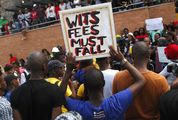
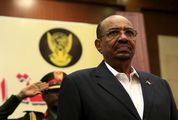




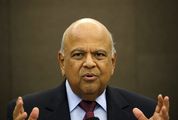



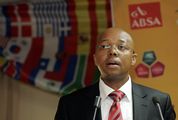








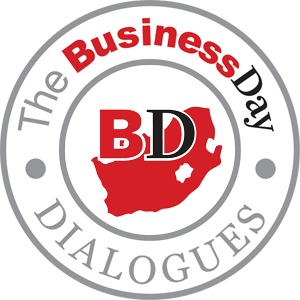

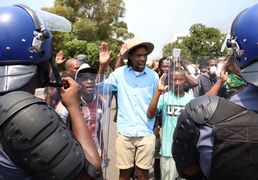




Change: -0.42%
Change: -0.35%
Change: -0.17%
Change: 0.14%
Change: -2.58%
Data supplied by Profile Data
Change: -0.51%
Change: -0.23%
Change: -0.42%
Change: 0.00%
Change: -0.56%
Data supplied by Profile Data
Change: 2.52%
Change: 1.50%
Change: 2.52%
Change: 3.31%
Change: 1.78%
Data supplied by Profile Data
Change: -0.28%
Change: 0.00%
Change: -0.46%
Change: 0.18%
Change: -3.00%
Data supplied by Profile Data